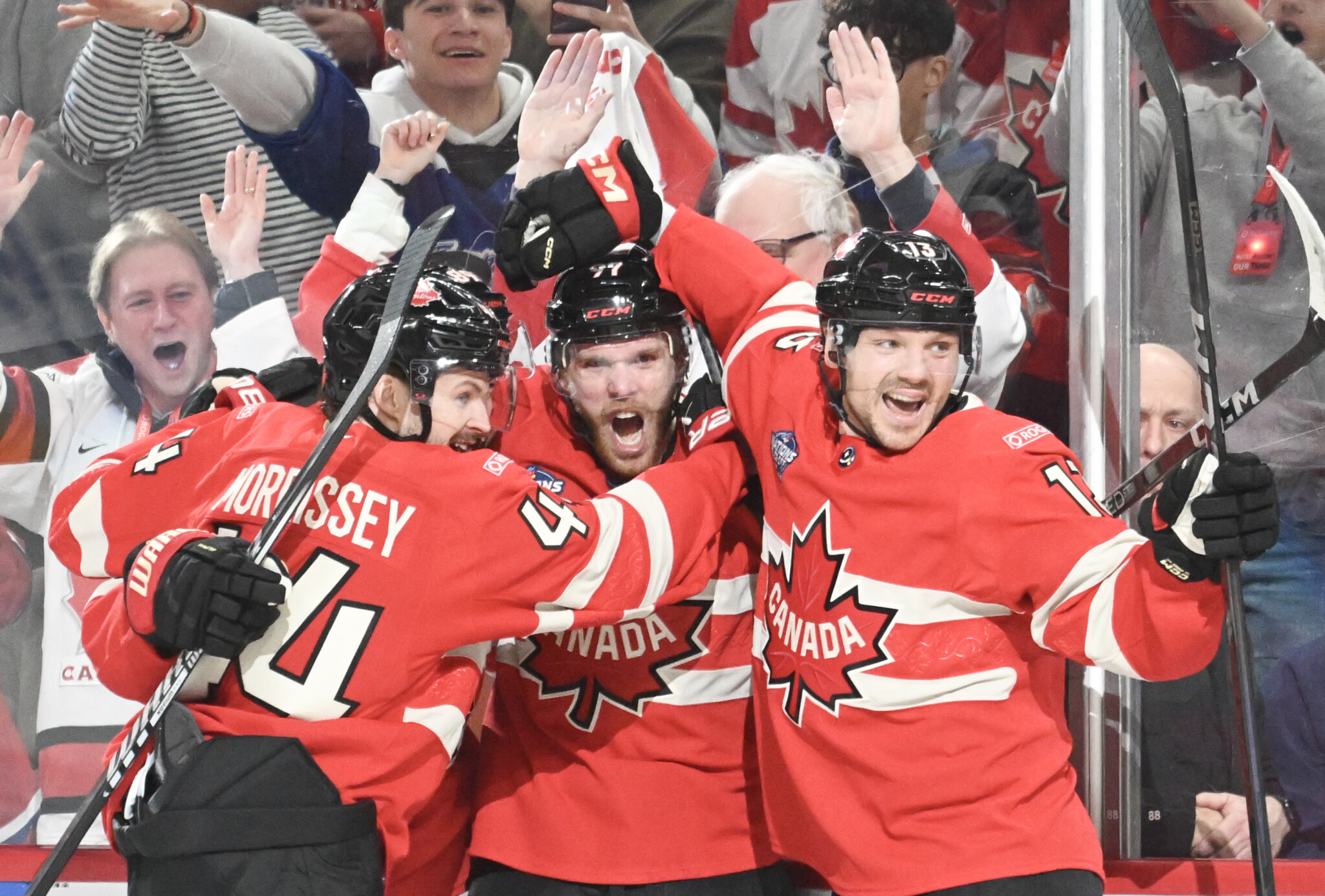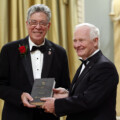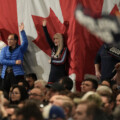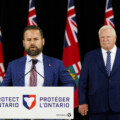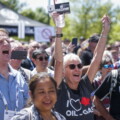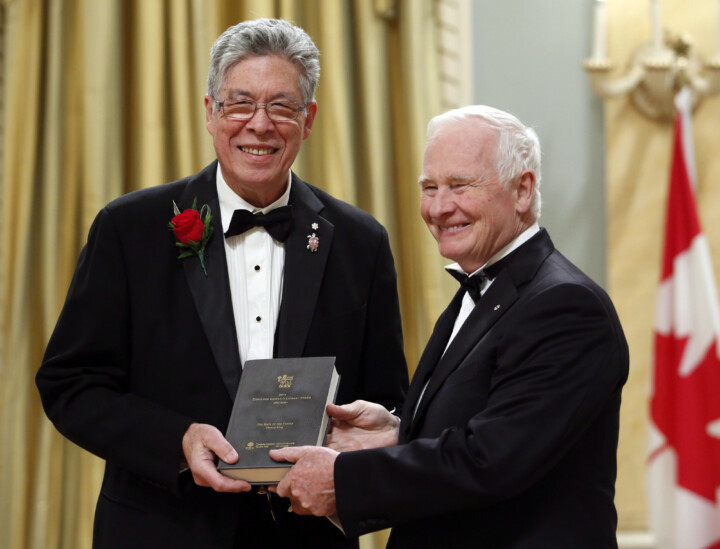In The Weekly Wrap Sean Speer, our editor-at-large, analyses for Hub subscribers the big stories shaping politics, policy, and the economy in the week that was.
Canada must summon its inner Crosby to compete in a changing world order
The intersection between politics and sports is well known. Historical episodes like Jesse Owens’ gold medals at the 1936 Berlin Olympics or Paul Henderson’s winning goal in the 1972 Summit Series are defined as much by their political significance as notable expressions of athletic competition.
When the National Hockey League and NHL Players Association conceived of the Four Nations Faceoff tournament, one suspects that politics weren’t at the forefront. Their motivation was far more prosaic. They wanted to boost league revenues and generate greater interest in the game.
But as Canada and the U.S. faced off last Saturday in a much-anticipated round-robin game, the tournament had become shot through with politics. Donald Trump’s relentless musings about Canada as the 51st state has catalysed a powerful sense of Canadian nationalism in search of an outlet.
The opening faceoff’s round of fights proved wrong those who thought the games wouldn’t be more than an exhibition series. The entire tournament, including Thursday’s final game, felt like it transcended the sport itself.
Yet Team Canada’s players and coaching staff never let themselves get sucked into the politics. They saw themselves as elite athletes rather than political combatants. They left the (oft-annoying) political commentary to others. (It’s frankly a healthy aspect of professional hockey that it generally hasn’t come to be imbued by politics in the same way that the NBA or the NFL have.)
The one exception was after the final game, Canada’s head coach, Jon Cooper, who is among the most interesting and thoughtful voices in the game, rightly acknowledged that Canada as a whole needed the win. It was as much a sense of relief as it was elation.
Ever since Trump launched his attacks on Canada, we’ve been thinking at The Hub about how to channel the attendant rise of nationalism in a constructive direction. One that would convey an affirmative patriotism and avoid narrow parochialism.
We still think this is among the biggest tests facing our country over the coming months. We cannot let Trump’s antagonism cause us to make self-limiting decisions, including attempting to build a “shield” around our economy and society. Put bluntly: misdirected nationalism can become the source of a lot of bad ideas.
But not the nationalism that we witnessed at the Four Nations tournament. It exposed a healthy competitiveness, a killer instinct, and a determination to be the best, one that Canada will need to call upon in what we’ve characterized as a “changing global order.”
Last weekend, Conservative leader Pierre Poilievre delivered his major Canada First speech. In his telling, Canada First reflects the idea of prioritizing Canada—of putting the country ahead of others. But as the Canada-U.S. final game showed, it also works on another level: Canada First can also be about Canada leading or winning against its global competitors.
We now need to summon our Sidney Crosbys and Connor McDavids in the world of industry to have the same outward ambitions. That, it must be understood, is the opposite of economic nationalism at least as it’s typically expressed. It’s instead a sense of national self-confidence that looks out to the world and believes that we, Canadians, can in fact hold our own.
A Canada First nationalism that’s channeled in the direction of aspiring to compete and win could ultimately be good for the country. It’s certainly one that served us well on the ice.
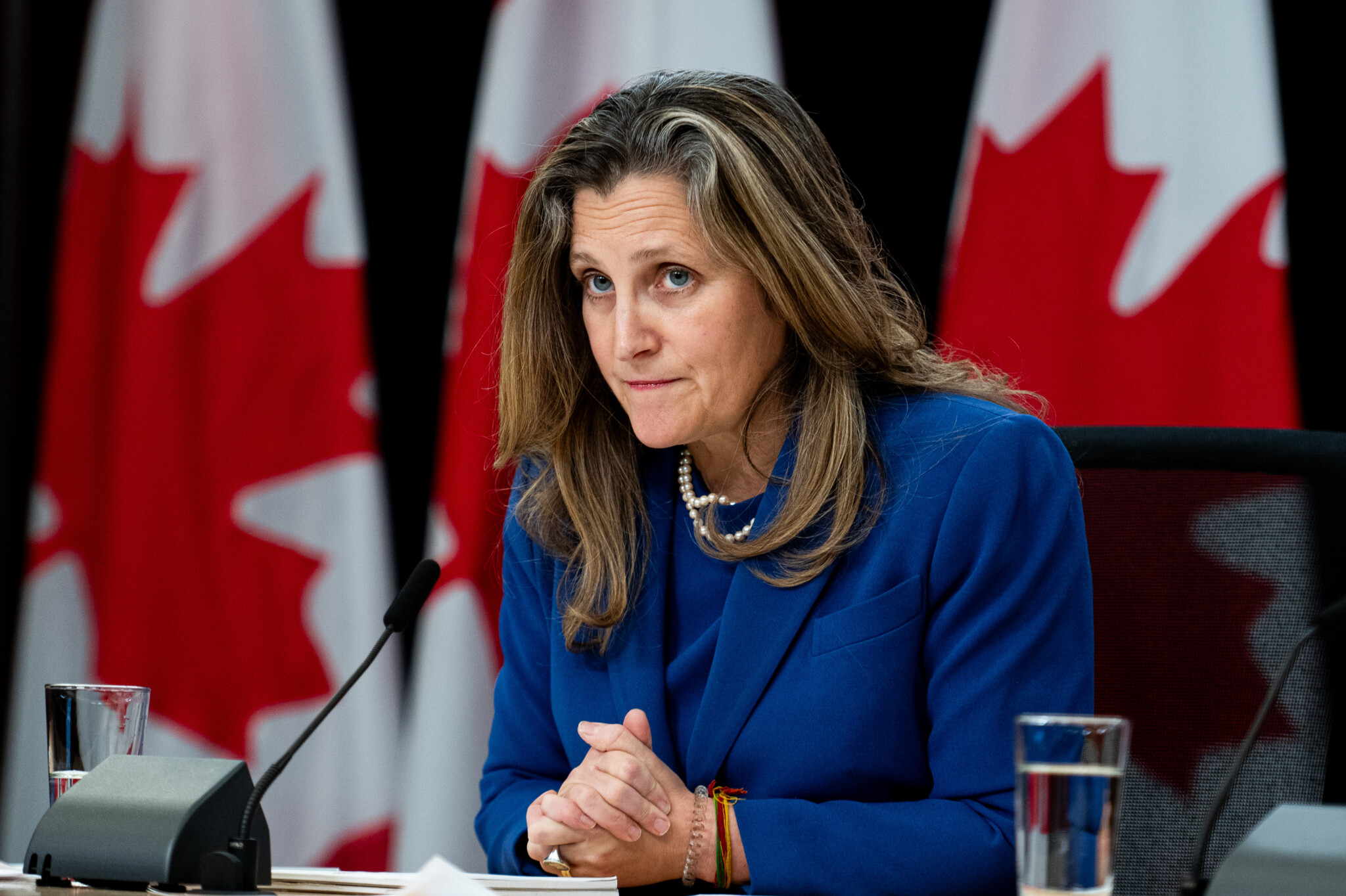
Minister of Finance and Deputy Prime Minister Chrystia Freeland holds a press conference at the National Press Theatre in Ottawa, Tuesday, Dec. 3, 2024. Spencer Colby/The Canadian Press.
Freeland’s only hope is to hit Carney hard—here’s how
Although there are limits to assessing the dynamics of leadership races—it typically requires proxy measures like donations or endorsements—there’s a strong sense that Mark Carney is running away with the Liberal Party race and, all things being equal, poised to become prime minister next month.
His campaign has thus far been a front-runner campaign. It’s been rather conservative. He’s held small private events and released vague policy directions. There have been no major speeches or media interviews.
The overarching narrative is that Carney is experienced and knowledgeable and ready to represent the country at a moment of crisis. Yet this week his campaign staff had to walk back the candidate’s comments on fiscal policy and resource development with the explanation that he’s still “refining his thinking.”
It leaves one with the sense that if Carney were exposed to greater contestation and scrutiny, we may learn something. It’s one thing to answer tough questions as a central banker. It’s ostensibly something else to answer them as an aspiring politician.
The first—and perhaps only—opportunity for spontaneous exchanges with Carney may be next week’s Liberal leadership debates. Monday’s French debate in particular will be an interesting test in an environment that isn’t perfectly familiar for Carney.
